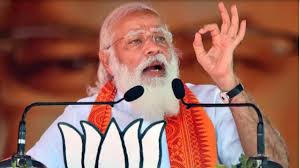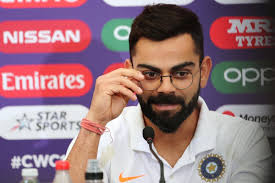[today_date]
Our Prime Minister Narendra Modi’s

Narendra Damodardas Modi, born on September 17, 1950, is an Indian politician serving as the Prime Minister of India since May 26, 2014. Before his prime ministership, Modi was the Chief Minister of Gujarat from 2001 to 2014 and is currently the Member of Parliament (MP) for Varanasi. He is a prominent member of the Bharatiya Janata Party (BJP) and the Rashtriya Swayamsevak Sangh (RSS), a right-wing Hindu nationalist organization. Modi is the longest-serving Prime Minister outside the Indian National Congress.
Early Life and Education
Narendra Modi was born in Vadnagar, Gujarat, to a family belonging to the Other Backward Class (OBC) category. He was the third of six children of Damodardas Mulchand Modi and Hiraben Modi. Modi completed his higher secondary education in Vadnagar in 1967. His teachers described him as an average student with a keen interest in debate and theatre.
Modi was introduced to the RSS at the age of eight and became a balswayamsevak (junior cadet). At 18, he was married to Jashodaben Modi, but he soon left her, acknowledging the marriage publicly only four decades later. In the early years of his life, Modi traveled extensively across India, visiting Hindu ashrams and immersing himself in spiritual and cultural studies. He earned a Bachelor of Arts in political science from the School of Open Learning at Delhi University in 1978 and a Master of Arts in political science from Gujarat University in 1983.
Early Political Career
In 1971, Modi became a full-time worker for the RSS. During the Emergency declared by Prime Minister Indira Gandhi from 1975 to 1977, Modi went underground to avoid arrest, traveling in disguise and organizing opposition activities. After the Emergency, he joined the BJP in 1985 and quickly rose through the party ranks.
By 1987, Modi was organizing the BJP’s campaigns, and in 1990, he played a key role in organizing L.K. Advani’s Ram Rath Yatra. In 1995, he was appointed BJP national secretary and later promoted to general secretary (organisation) in 1998.
Chief Minister of Gujarat
In 2001, Modi was appointed Chief Minister of Gujarat. His tenure is marked by the controversial 2002 Gujarat riots, where over 1,000 people, mostly Muslims, were killed. A Special Investigation Team appointed by the Supreme Court of India in 2012 found no evidence to prosecute him. Despite this, the incident remains a contentious part of his legacy.
As Chief Minister, Modi focused on economic reforms, leading to significant industrial growth in Gujarat. However, his administration faced criticism for not substantially improving health, poverty, and education indices.
Prime Minister of India
Modi led the BJP to a historic victory in the 2014 general elections, securing a parliamentary majority for the first time since 1984. His tenure as Prime Minister has seen several significant policy initiatives and controversies:
- Economic Reforms: Modi’s government increased foreign direct investment and implemented the Goods and Services Tax (GST). However, his demonetization policy in 2016, which aimed to curb black money, faced widespread criticism for its implementation and economic impact.
- Sanitation Campaign: He launched the Swachh Bharat Abhiyan (Clean India Mission), aiming to improve sanitation across the country.
- Balakot Airstrike: In 2019, Modi’s administration launched an airstrike on an alleged terrorist training camp in Pakistan, garnering nationalist support despite the strike’s limited success.
- Jammu and Kashmir: In August 2019, his government revoked the special status of Jammu and Kashmir, leading to significant political and social upheaval.
- Citizenship Amendment Act: The introduction of this act in December 2019 sparked widespread protests due to concerns over its exclusionary nature.
- COVID-19 Pandemic: Modi oversaw India’s response to the COVID-19 pandemic, during which the World Health Organization estimated 4.7 million Indians died.
Challenges and Criticisms
Modi’s administration has faced accusations of democratic backsliding, weakening of democratic institutions, and curtailing freedom of expression. His policies and leadership style have led to significant polarization in Indian politics.
Despite these challenges, Modi remains a popular figure with consistently high approval ratings. He is credited with engineering a political shift towards right-wing politics in India.

